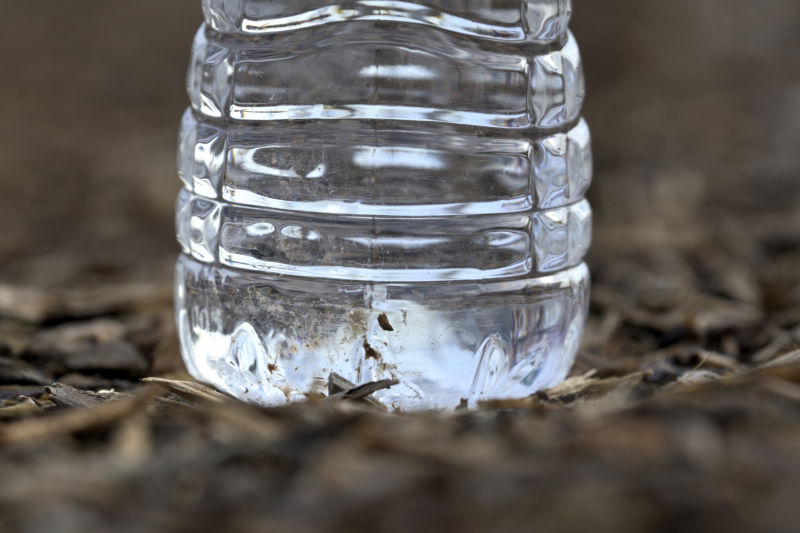
Several brands of bottled water contain concerning levels of arsenic contamination, according to an investigation by Consumer Reports.
The worst offenders in the report were Starkey, a brand owned by Whole Foods and marketed as water in its “natural state,” and Peñafiel, owned by Keurig Dr Pepper and imported from Mexico.
Samples of Peñafiel tested by CR had arsenic levels that averaged 18.1 parts per billion, well above the federal allowable limit of 10ppb set by the Food and Drug Administration. Testing of Whole Foods’ Starkey Water revealed levels at or just a smidge below federal limits, with results ranging from 9.48 ppb to 10.1 ppb.
Arsenic is a trace element in rock and sediment and can contaminate groundwater naturally from geological sources or from human activities, such as mining and run-off from agricultural and industrial sources. Long-term exposure to high-levels of arsenic are associated with skin disorders and increased risks of certain cancers, diabetes, and high blood pressure, according to the Centers for Disease Control and Prevention. Some studies have also linked arsenic to impaired intellectual development following exposure early in life.
In response to CR’s findings, Keurig Dr Pepper announced that it had suspended bottled water production at its Mexico facility and would revamp its filtration. Whole Foods, on the other hand, said that it had run its own tests on batches of water that CR tested and determined that the levels were acceptable. The company’s test results “show these products are fully compliant with FDA standards for heavy metals,” Whole Foods told CR in a statement. It added that it tests “every production run of water before it is sold” and that the company would “never sell products that do not meet FDA requirements.”
Yet, this is not the first time Starkey Water has run into issues with arsenic. From late 2016 to early 2017, Starkey recalled 2,000 cases of water over arsenic levels above the federal threshold.
Is 10ppb too high?
Additionally, some public health experts and researchers say the federal threshold is too high. As such, some states have set different arsenic standards for their water. New Jersey, for instance, set the maximum allowable arsenic level in tap water at 5ppb. But the Garden State still goes by the federal 10ppb limit for bottled water.
Scientists hired by CR recommend that regulators cut the threshold down to 3ppb. In their analysis of 130 bottled waters, CR found six brands that had levels at or above 3ppb. In addition to Starkey and Peñafiel, those brands are Crystal Geyser Alpine Spring Water (3.8ppb), Danone’s Volvic (4ppb), and two regional brands, Crystal Creamery (5ppb) and EartH₂O (3ppb).
One reason to keep the levels low in water is that water is just one source of arsenic exposure in daily life. As a naturally occurring element in soil, it can be found in plants, air, and food. Advocates have also expressed concern over levels of arsenic in fruit juices and rice-based baby foods. (Rice plants are particularly good at sucking arsenic and other elements, such as mercury, out of soils.)
Given its natural sources, avoiding arsenic can be difficult in some instances—but the multibillion-dollar bottled water industry in the United States is not one of them, according to critics.
“With bottled water, why should you have arsenic in the water?” Ana Navas-Acien, professor of environmental health sciences at the Columbia University Mailman School of Public Health, asked CR. “There should be plenty of opportunities for treatment and remediation.”
https://arstechnica.com/?p=1493869

